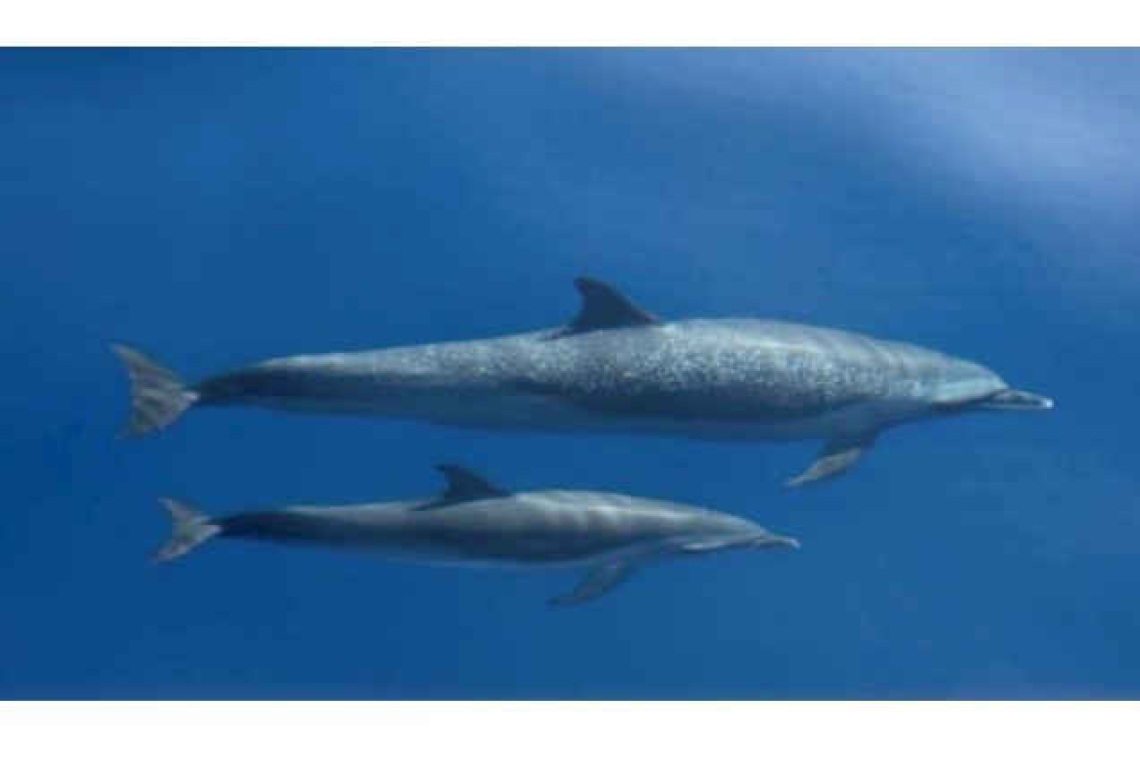Via BioNews from the Dutch Caribbean Nature Alliance
The Ti Whale An Nou program embarked on its seventh expedition of 2023 around the islands of Aruba, Bonaire, Curaçao (ABC), charting new territories in marine mammal research in the Caribbean. The expedition spotted eight different species of whales and dolphins, including a number of juveniles, hinting on the importance of these areas for nursery habitats.
Launched in 2021, the Caribbean Cetacean Society’s Ti Whale An Nou program emphasizes local leadership and collaborative efforts across the Caribbean to safeguard marine mammals. The ABC expedition took place in October 2023 and represents the first standardized cetacean survey for these islands. There were an impressive 29 observations which included eight different cetacean (whales, dolphins and porpoises) species, including the Atlantic spotted dolphin, Bottlenose dolphin, Kogia species, Pantropical spotted dolphin, Pygmy killer whale, Short-finned pilot whale, Sperm whale, and Spinner dolphin. Highlighting the rich biodiversity of the southern Dutch Caribbean islands, this expedition offers unprecedented insights into species diversity, distribution, relative abundance.
Discoveries
Among the most exciting discoveries were 13 new sperm whales in the waters around Bonaire and Curaçao. Additionally, the presence of juveniles across various species underscores the crucial role of the ABC islands as a nursery habitat, offering sanctuary and sustenance to the next generation of marine life. Furthermore, the expedition’s encounters with Bryde’s whales shed light on the migration patterns and distribution of this elusive species. The survey wasn’t just about cetaceans; it also mapped the offshore distribution of 12 seabird species, emphasizing the interconnectedness of marine and avian biodiversity.
Local Connections
The expedition’s success was a collective triumph, involving 26 local residents from the ABC islands, fostering a spirit of community and shared responsibility for the marine environment. This collaboration brought together individuals from various sectors – from government bodies to conservation NGOs and marine park authorities – all united by a common goal: To protect and preserve the marine life that defines their home.
The Future
Looking ahead, the implications of these findings are vast. The valuable data collected can contribute to the development of a management plan for the Yarari Marine Mammal and Shark Sanctuary in Bonaire and advocate for its expansion to include Aruba and Curaçao.
This expedition has not only expanded local knowledge of the marine populations, but also highlighted the urgent need for continued education, research and conservation efforts. The next expedition around the ABC-islands is planned for September 2024. In addition, expeditions are scheduled to take place around Saba, Sint Maarten and Sint Eustatius in May and August as part of the Ti Whale An Nou program.
The successes of the Ti Whale An Nou program illuminate the path forward, demonstrating the power of collaboration and provide invaluable information to push for the creation of a Caribbean regional IUCN red list.
Photo: Pantropical spotted dolphins. Credit: CCS.







